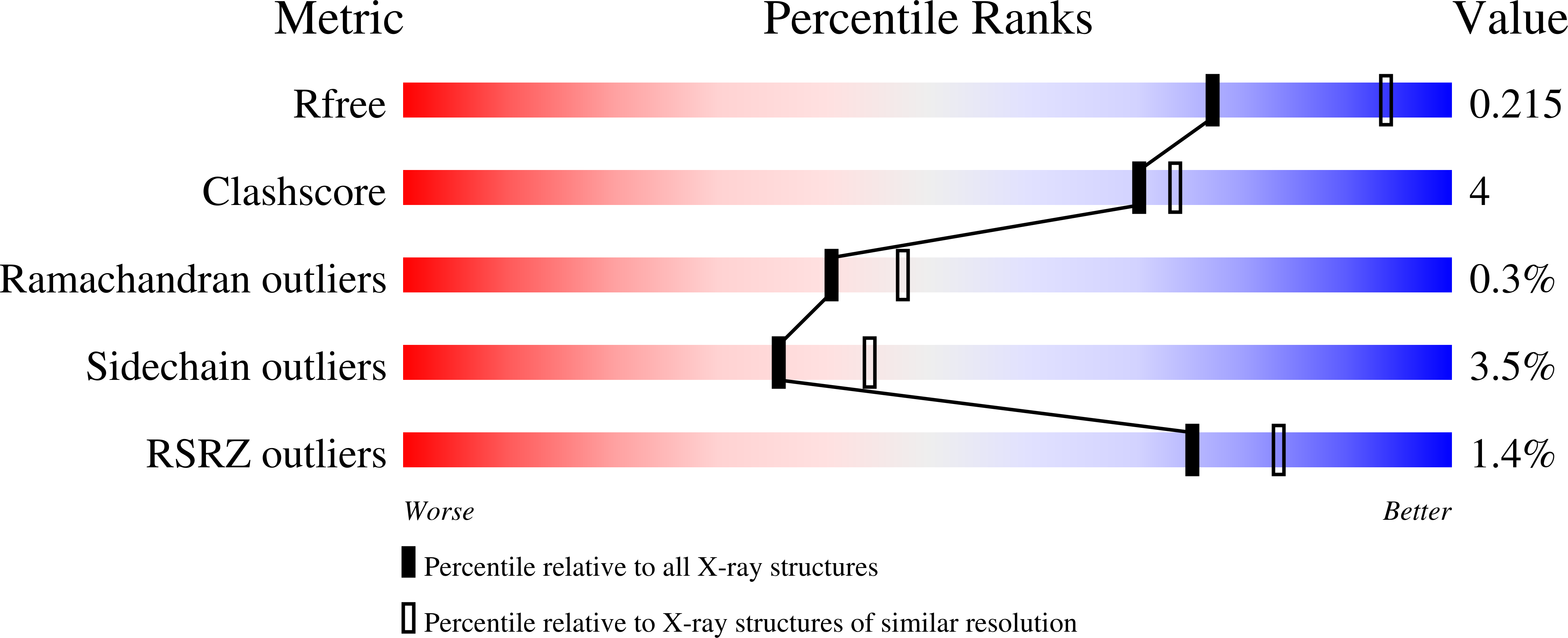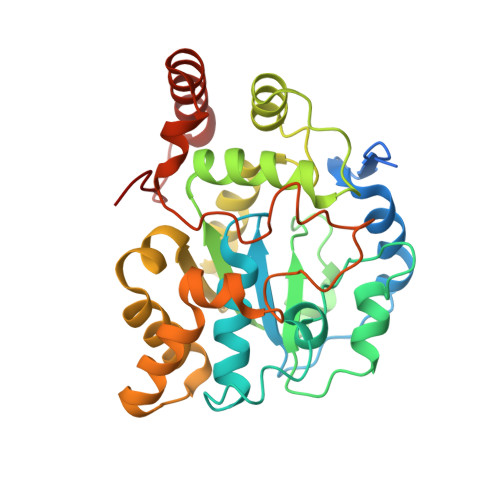The molecular basis for the broad substrate specificity of human sulfotransferase 1A1.
Berger, I., Guttman, C., Amar, D., Zarivach, R., Aharoni, A.(2011) PLoS One 6: e26794-e26794
- PubMed: 22069470
- DOI: https://doi.org/10.1371/journal.pone.0026794
- Primary Citation of Related Structures:
3U3J, 3U3K, 3U3M, 3U3O, 3U3R - PubMed Abstract:
Cytosolic sulfotransferases (SULTs) are mammalian enzymes that detoxify a wide variety of chemicals through the addition of a sulfate group. Despite extensive research, the molecular basis for the broad specificity of SULTs is still not understood. Here, structural, protein engineering and kinetic approaches were employed to obtain deep understanding of the molecular basis for the broad specificity, catalytic activity and substrate inhibition of SULT1A1. We have determined five new structures of SULT1A1 in complex with different acceptors, and utilized a directed evolution approach to generate SULT1A1 mutants with enhanced thermostability and increased catalytic activity. We found that active site plasticity enables binding of different acceptors and identified dramatic structural changes in the SULT1A1 active site leading to the binding of a second acceptor molecule in a conserved yet non-productive manner. Our combined approach highlights the dominant role of SULT1A1 structural flexibility in controlling the specificity and activity of this enzyme.
Organizational Affiliation:
Department of Life Sciences, Ben-Gurion University of the Negev, Be'er Sheva, Israel.
















